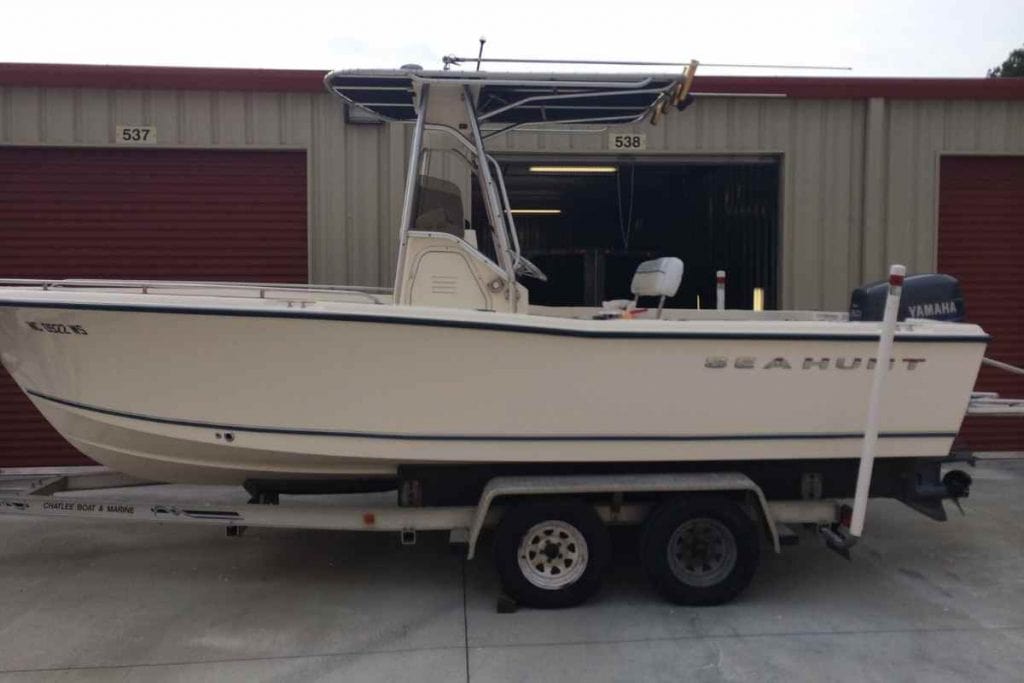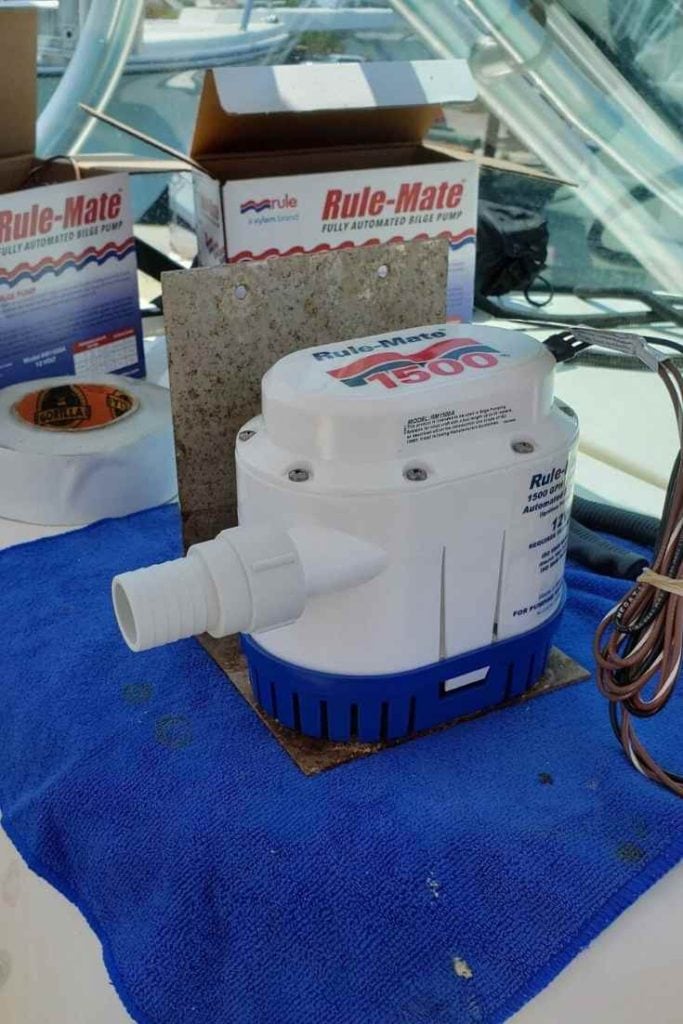Can Any Boat Be Used in Saltwater? (6 Examples)
If you are in the market for a new boat or are changing locations of where you plan to use your current ride, you may be curious about what type of water is best for your boat.
While those who are inexperienced with boats may not understand their differences, boat enthusiasts will be able to tell you that there are remarkable differences in each boat- some that have features for freshwater use and some that make saltwater cruising a breeze.
Can Any Boat Be Used in Saltwater?
Can any boat be used in saltwater? Technically, yes, any boat can be used in saltwater.
However, there are many conditions under this clause that will determine if saltwater is the best option for your boat.
You will need to provide adequate saltwater maintenance, ensure that the risk of capsizing in rough waters is not too high, and make sure the engines are thoroughly flushed.
With these requirements (and more), you may consider whether you and your boat are prepared to transition from freshwater to saltwater.
In this article, we will discuss 6 examples of good saltwater boats as well as several of the components that will make your boat suitable for saltwater.
6 Example Boats that Are Great in Saltwater
Almost any boat can be transformed into a boat that will survive in saltwater. However, there are certainly boats that are more suited for the waves of saltwater terrain.
Here are just a few examples of various boats that will serve you well in saltwater. The main thing to remember with any boat that is used in saltwater is to properly care for and maintain this hefty piece of equipment.
The time and effort will be well worth it in preserving your boat.
Cabin Cruisers
These boats are known for their amenities and their expansive, liveable cabin area. This boat can handle most water surfaces including saltwater.
One factor that makes this boat suitable for the ocean is its deep V-shaped monohull. While this powerboat is not known for its speed, it will still offer the necessary support and qualities that a saltwater boat needs.
Center Console Boats
These fishing boats are not the cheapest compared to others of similar style, they are incredibly easy to navigate as well as transport.
Additionally, they offer sufficient storage for fishing and other equipment. With a solid bottom paint, their strong hull can traverse offshore saltwater regions.

Fish and Ski Boats
This boat is known for the activities and versatility it can provide for the entire family. With enough seating to take a solid crew out on the water, the fish and ski boat will provide an opportunity for travel in lakes or oceans alike.
Though this boat is not incredibly hefty, it can still manage well in considerable waves. With proper maintenance, the fish and ski boat can be used in both freshwater and saltwater regions.
Sailboats
This classic and beautiful boat can be sported on both freshwater and saltwater surfaces so long as there is enough wind to support the vessel’s movement.
Catching the wind in both the sails and the guests’ hair, this boat can bring passengers to an enjoyable day out on the water. With a deep hull, this boat will make a great boat for a sunny day on the lake or ocean.
Catamarans
Catamarans offer similar features as a sailboat but can also be found in a motorized edition. Catamarans offer a twin-hull (rather than a monohull of a sailboat) that increases the buoyancy and the navigability of the boat.
Catamarans with a good bottom paint job will be an enjoyable and extremely safe boat to take into the saltwater.

Tow Sports Boats
These boats are attractive not only because of their sleek style, but because they are often seen with someone doing water tricks off of the back of them.
Tow sports boats’ engines are located at the back of the boat which creates more opportunity for a true “ripple effect” or wakes- perfect for wakeboarding, water skiing, and other water sports. This boat can do well in both freshwater and saltwater- just be sure to flush the engine if you use it in the ocean.
What Do You Need to Do to Prepare a Boat for Saltwater?
If you are planning to use a boat, that is typically accustomed to freshwater, for a ride in saltwater, then you will need to make sure that you and the boat are adequately prepared for the transition.
This is important in the case of transitioning a freshwater boat to a saltwater boat for a single-time, multi-, or full-time transition.
To prepare a freshwater boat for saltwater, you will need to make sure that it has an adequate antifouling bottom paint job, engines equipped with an appropriate cooling system, a bilge pump equipped for saltwater, aluminum or zinc anodes, and a hull that can appropriately navigate larger waves.
This, along with extensive maintenance, can help your boat to survive the higher salinity.
Antifouling Bottom Paint
Boats in saltwater are exposed to higher salinity and are therefore more susceptible to corrosion. Thus, boat hulls should be coated with an epoxy base or fiberglass to prevent the damage that can happen to an aluminum or another metal base.
Additionally, a fresh, un-chipped coat of antifouling bottom paint will help your boat maintain its speed and proper condition in saltwater.
Antifouling bottom paint is designed to prevent the attachment of particles such as barnacles, weeds, and other matter from attaching itself to and damaging your boat.
These particles not only damage your boat but inhibit its speed as well due to the uneven surface they create on your boat’s hull. Adding a coat of bottom paint to your saltwater boat is a must- especially if you plan on allowing your boat to ever be stored in the water.
Engines for Saltwater Boats
Engines are what propels your boat forward providing the speed and the power to move through the open sea. Engines for saltwater and freshwater boats are not the same, though, so converting or replacing your engine will be critical for your boat’s performance in saltwater.
Otherwise, you will end up with a galvanized (aka not functioning) engine and will get to enjoy feeling like a sitting duck.
The best type of engine for a saltwater boat will have a fully closed cooling system that does not use the external water to cool itself down.
While raw water and half-closed cooling systems use all or some degree of the available water to cool themselves (thus dragging in the saltwater in this surface), fully closed cooling systems do not suck in the additional particles into the engine.
In choosing an engine with a fully closed cooling system, you will prevent your engine from sucking up the salt that could begin to corrupt the metal of the engine.
If you are not able to use this type of engine, it is all the more important to thoroughly flush your engine after each use. This will help to prevent the effects of the salt as well.
Bilge Pumps in Saltwater

The bilge pump is what removes the excess water from onboard your deck and pushes it back out to the sea. If you plan to remove your boat from the water immediately, you can be sure to flush it out.
However, you can also plan to switch your bilge pump to a saltwater bilge pump if you plan to use your boat in saltwater long-term.
Considering that bilge pumps can also corrode due to the effects of salt on metal, it is important to take care of this piece of your boat.
Should you have water overflowing the edges of your boat due to large waves or heavy rain, you will want to make sure your bilge pump is working effectively in the saltwater as well.
Aluminum or Zinc Anodes
While the anodes on freshwater boats are typically magnesium-based, those that are used in saltwater should be aluminum- or zinc-based.
Anodes (often referred to as sacrificial anodes) are used to protect your boat from electrical currents. Since the water is full of electrical currents, it is critical to protect your boat with anodes that will resist saltwater corruption.
Anodes that are aluminum- or zinc-based are more likely to resist the effects of saltwater on anodes, thus offering a more long-lasting component for your boat. You should replace your anode when it is more than half corroded.
Having an aluminum- or zinc-based anode will help to prevent the need of replacing the anode more frequently and thus add additional layers of protection for your boat’s electrical equipment.
Hull Appropriate for Saltwater
Most freshwater surfaces do not offer large, robust waves that will affect your boat’s ability to traverse it.
In fact, in freshwater areas such as lakes, boats are typically the source of the waves. Thus, in freshwater, the measure of the hull is relatively unimportant for the purpose of buoyancy and passing through the water.
On the other hand, a strong, deep hull is going to be essential for trekking through higher, stronger waves that saltwater areas like the ocean will offer.
In saltwater regions, you can expect there to be more force for which the boat will have to contend. Therefore, boats without deep, angular hulls will have too great a risk for capsizing in deep saltwater areas and are not appropriate to be taken far out.
